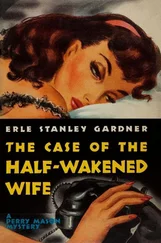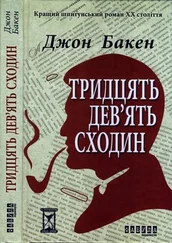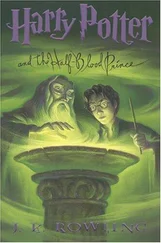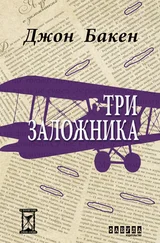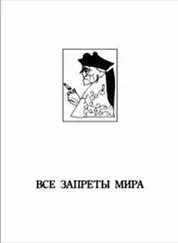Джон Бакен - The Half-hearted
Здесь есть возможность читать онлайн «Джон Бакен - The Half-hearted» весь текст электронной книги совершенно бесплатно (целиком полную версию без сокращений). В некоторых случаях можно слушать аудио, скачать через торрент в формате fb2 и присутствует краткое содержание. Жанр: Детектив, на английском языке. Описание произведения, (предисловие) а так же отзывы посетителей доступны на портале библиотеки ЛибКат.
- Название:The Half-hearted
- Автор:
- Жанр:
- Год:неизвестен
- ISBN:нет данных
- Рейтинг книги:5 / 5. Голосов: 1
-
Избранное:Добавить в избранное
- Отзывы:
-
Ваша оценка:
- 100
- 1
- 2
- 3
- 4
- 5
The Half-hearted: краткое содержание, описание и аннотация
Предлагаем к чтению аннотацию, описание, краткое содержание или предисловие (зависит от того, что написал сам автор книги «The Half-hearted»). Если вы не нашли необходимую информацию о книге — напишите в комментариях, мы постараемся отыскать её.
The Half-hearted — читать онлайн бесплатно полную книгу (весь текст) целиком
Ниже представлен текст книги, разбитый по страницам. Система сохранения места последней прочитанной страницы, позволяет с удобством читать онлайн бесплатно книгу «The Half-hearted», без необходимости каждый раз заново искать на чём Вы остановились. Поставьте закладку, и сможете в любой момент перейти на страницу, на которой закончили чтение.
Интервал:
Закладка:
He would receive reinforcements from Abbotabad by the afternoon of the next day; if Bardur and Gilgit, or Yasin as it might be, could delay the attack till then everything might be safe-unless, indeed, the whole nexus of hill-tribes rose as one man. In which case there would be the devil to pay, and he had no advice to give.
Thwaite read and laughed grimly. It was not a question of a day's delay, but of an hour's, and the hill-tribes, if he judged Marker's cleverness rightly, would act just as Jackson feared. The business had begun among the navvies at Bardur and Gilgit and Boonji. In a little they would have news of real tribal war-Hunzas, Pathans, Chitralis, Punialis, and Chils, tribes whom England had fought a dozen times before and knew the mettle of; now would be the time for their innings. Well supplied with money and arms-this would have been part of Marker's business-they would be the forerunners of the great army. First savage war, then scientific annihilation by civilized hands-a sweet prospect for a peaceful man in the prime of life!
He returned to the fort to find all quiet and in order. It commanded the north road, but though the eye might weary itself with looking on the moonlit sandy valley and the opaque blue hills, there was no sight or sound of men. The stars were burning hard and cold in the vault of sky, and looking down somewhere on the march of an army. It was now close on midnight; in five hours dawn would break in the east and the night of attack would be gone. But death waited between this midnight hour and the morning. What were Haystoun and the men from Khautmi doing? Fighting or beyond all fighting? Well, he would soon know. He was not afraid, but this cursed waiting took the heart out of a man!
And he looked at his watch and found it half-past twelve.
At Yasin there was the most severe fighting. It lasted for three days, and in effect amounted to a little tribal war. A man called Mackintosh commanded, and he had the advantage of having regulars with him, Gurkhas for the most part, who were old campaigners. The place had seemed unquiet for some days, and certain precautions had been taken, so that when the rioting broke out at sunset it was easy to get the town under subjection and prepare for external attack. The Chiling Pass into Chitral had given trouble of old, but Mackintosh was scarcely prepared for the systematic assaults of Punialis and Tangiris from the east and south. Having always been famous as an alarmist he put the right interpretation on the business, and settled down to what he half hoped, half feared, might be a great frontier war. The place was strong only on the north side, and the defence was as much a question of engineering as of war. His Sepoys toiled gallantly at the incomplete defences, while the rest fought hand to hand-bayonet against knife, Metford against Enfield-to cover their labour. He lost many men, but on the evening of the next day he had the satisfaction of seeing the fortifications complete, and he awaited a siege with equanimity, as he was well victualled.
On the second night the enemy again attacked, but the moon was bright, and they were no match for his sharpshooters. About two in the morning they fell back, and for the next day it looked as if they proposed to invest the garrison. But by the third evening they began to melt away, taking with them such small plunder as they had won. Mackintosh, who was a man of enterprise, told off a detachment for pursuit, and cursed bitterly the fate which had broken his ankle with a rifle-bullet.
In the south along the railway the warnings came in good time. At Rawal Pindi there was some small difficulty with native officials, a large body of whom seemed to have unaccountably disappeared. This delayed for some time the sending of a freight-train to Abbotabad, but by and by substitutes were found, and the works left under guard. The telegram to Peshawur found things in readiness there, for memories of old trouble still linger, and people sleep lightly on that frontier. Word came of native riots in the south, at Lahore and Amritsar, and the line of towns which mark the way to Delhi. In some places extraordinary accidents were reported. Certain officers had gone off on holiday and had not returned; odd and unintelligible commands had come to perplex the minds of others; whole camps were reported sick where sickness was least expected. A little rising of certain obscure rivers had broken up an important highway by destroying all the bridges save the one which carried the railway. The whole north was on the brink of a sudden disorganization, but the brink had still to be passed. It lay with its masters to avert calamity; and its masters, going about with haggard faces, prayed for daylight and a few hours to prepare.
George had sent his men to Khautmi before he entered the telegraph hut, and he followed himself in twenty minutes. Somewhere upon the hill-road he met St. John with a dozen men, who abused him roundly and besought details.
"Are you sure?" he cried. "For God's sake, say you're mistaken. For, if you're not, upon my soul it's the last hour for all of us."
George was in little mood for jest. He told Lewis's tale in a few words.
"A pass beyond Nazri," the man cried. "Why, I was there shooting buck last week. Up the nullah and over the ridge, and then a cleft at the top of the next valley? Does he say there's a pass there? Maybe, but I'll be hanged if an army could get through. If we get there we can hold it."
"We haven't time. They may be here at any moment. Send men to Forza and get them to light the fires. Oh, for God's sake, be quick! I've left Haystoun down there. The obstinate beggar was too tired to move."
Over all the twenty odd miles between Forza and Khautmi there is a chain of fires which can be used for signals in the Border wars. On this night Khautmi was to take the west side of the Nazri gully and Forza the east, and the two quickest runners in the place were sent off to Andover with the news. He was to come towards them, leaving men at the different signal-posts in case of scattered assaults, and if he came in time the two forces would join in holding the Nazri pass. But should the invader come before, then it fell on the Khautmi men to stand alone.
It was a smooth green hollow in the stony hills, some hundred yards wide, and at the most they might hope to make a fight of thirty minutes.
St. John and George, with their men, ran down the stony road till the sweat dripped from their brows, though the night was chilly. Mitchinson was to follow with the rest and light the fires; meantime, they must get to Nazri, in case the march should forestall them. St. John was cursing his ill-luck. Two hours earlier and they might have held the distant cleft in the hills, and, if they were doomed to perish, have perished to some purpose. But the holding of the easy Nazri pass was sheer idle mania, and yet it was the only chance of gaining some paltry minutes. As for George, he had forgotten his vexatious. His one anxiety was for Lewis; that he should be in time to have his friend at his side. And when at last they came down on the pass and saw the camp-fire blazing fiercely and no trace of the enemy, he experienced a sense of vast relief. Lewis was making himself comfortable, cool beggar that he was, and now was probably sleeping. He should be left alone; so he persuaded St. John that the best point to take their stand on was on a shoulder of hill beyond the fire. It gave him honest pleasure to think that at last he had stolen a march on his friend. He should at least have his sleep in peace before the inevitable end.
He looked at his watch; it was almost half-past eleven.
"Haystoun said they'd be here at midnight," he whispered to his companion. "We haven't long. When do you suppose Andover will come?"
"Not for an hour and a half at the earliest. Afraid this is going to be our own private show. Where's Haystoun?"
Читать дальшеИнтервал:
Закладка:
Похожие книги на «The Half-hearted»
Представляем Вашему вниманию похожие книги на «The Half-hearted» списком для выбора. Мы отобрали схожую по названию и смыслу литературу в надежде предоставить читателям больше вариантов отыскать новые, интересные, ещё непрочитанные произведения.
Обсуждение, отзывы о книге «The Half-hearted» и просто собственные мнения читателей. Оставьте ваши комментарии, напишите, что Вы думаете о произведении, его смысле или главных героях. Укажите что конкретно понравилось, а что нет, и почему Вы так считаете.

